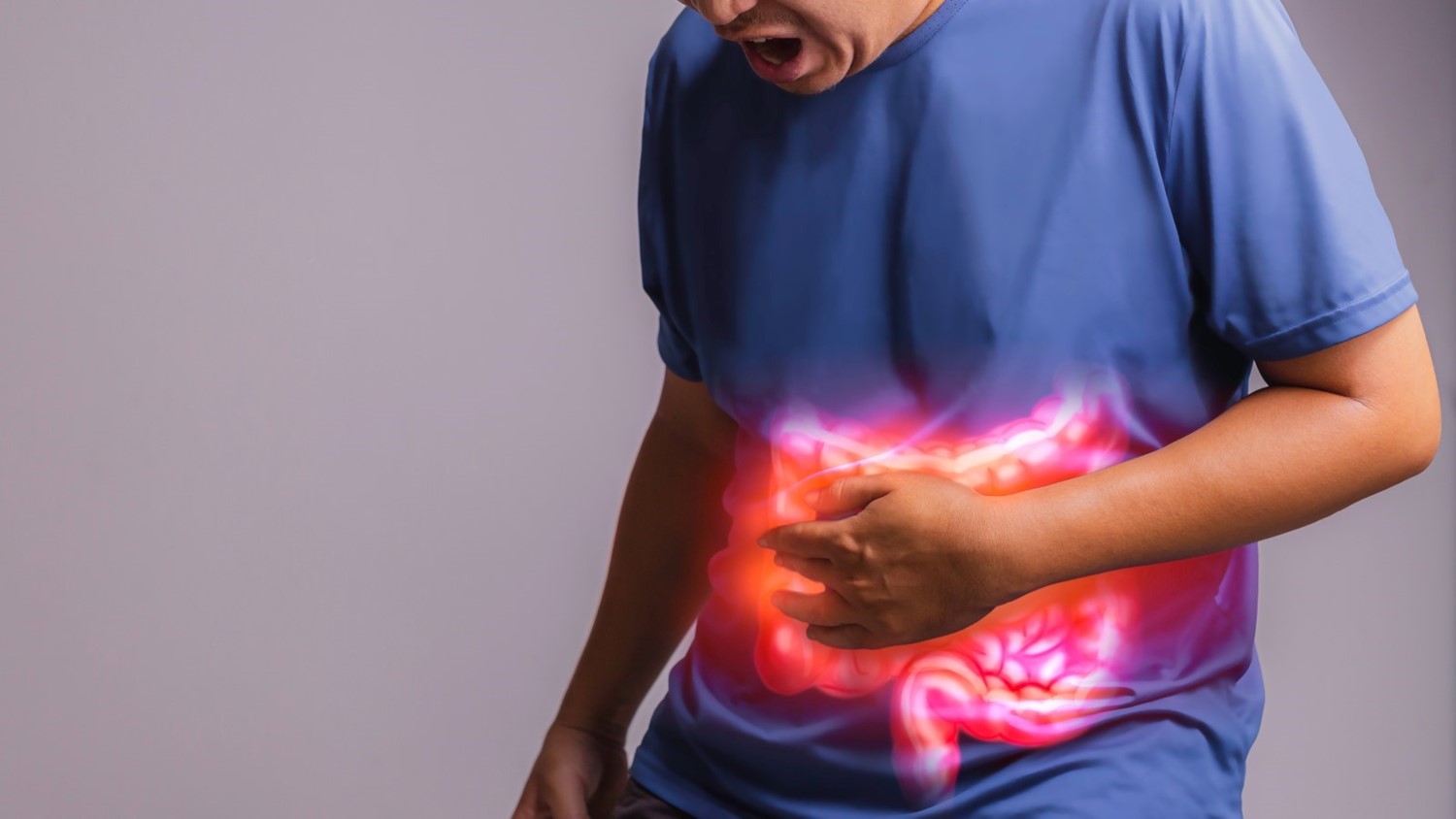A digestive disorder in which stomach contents flow back into the esophagus, causing irritation and discomfort. Typically, food moves from the mouth to the stomach via the esophagus. In GERD, this process is disrupted, leading to symptoms like heartburn and regurgitation.
What Are the Symptoms of GERD?
Common symptoms of GERD include:
- A burning sensation in the chest (heartburn), particularly after eating, which worsens at night or when lying down.
- Regurgitation of food
- Upper abdominal or chest pain.
- Difficulty swallowing (dysphagia).
- A sensation of a lump in the throat.
What Causes GERD?
GERD occurs due to frequent acid reflux. Normally, when you swallow, the lower esophageal sphincter (LES), a circular band of muscle at the bottom of the esophagus, relaxes to allow food into the stomach, then closes. If the LES doesn’t close properly or weakens, stomach acid flows back into the esophagus, irritating its lining.
What Are the Risk Factors for GERD?
Several factors increase the risk, including:
- Obesity
- Hiatal hernia (bulging of the upper stomach)
- Pregnancy
- Delayed stomach emptying
- Use of certain medications (like aspirin)
- Smoking
- Eating large meals late at night
- Excessive alcohol consumption
How Is GERD Diagnosed?
To diagnose GERD, doctors may recommend the following tests:
- Upper endoscopy: To check for inflammation in the esophagus.
- Ambulatory acid (pH) probe test: To monitor acid reflux duration and frequency.
- X-ray of the upper digestive system: To visualize the esophagus and stomach.
- Esophageal manometry: To measure muscle contractions during swallowing.
- Transnasal esophagoscopy: To detect any esophageal damage.
What Are the Treatment Options for GERD?
Treatment often includes medications
- To neutralize stomach acid.
- To reduce acid production and promote healing.
What Are the Surgical Options for GERD?
In severe cases, surgical treatments are considered, including:
- Fundoplication: A process to tighten the LES and prevent acid reflux.
- LINX device: A ring of magnetic beads around the esophagus-stomach junction to prevent acid reflux.
- Transoral incisionless fundoplication (TIF): A minimally invasive procedure to tighten the LES.
How Can Lifestyle Changes Help Manage GERD?
Simple lifestyle modifications can reduce acid reflux:
- Maintaining a healthy weight.
- Quitting smoking.
- Elevating your head during sleep.
- Sleeping on your left side.
- Eating slowly and avoiding trigger foods like alcohol, caffeine, and fatty foods.
By making these changes and following appropriate treatments, GERD symptoms can be effectively managed.



